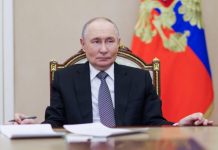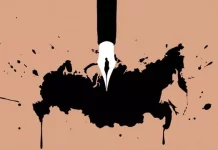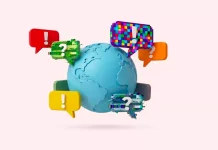It is no secret that Russia’s propaganda and disinformation efforts are far-reaching, operating on a truly global scale. Despite their broad scope, these activities remain primarily a strategic tool in its confrontation with the West. Even when targeting South American or African states and societies, they ultimately aim to weaken the global standing of the West.
Moscow recognizes that it cannot overpower the West economically, militarily, or demographically. Instead, it seeks to divide and destabilize Western societies from within. While much has been said about Russian propaganda’s influence within the West, less attention is paid to its operations in the so-called Global South, particularly in the African information sphere. In the economic domain, Russia has largely ceded influence in Africa to China, unable to compete effectively. This West-centric perspective has led to a sense of complacency and surprise; for instance, in February 2022, following Russia’s invasion of Ukraine, it became evident that the world does not universally or unequivocally condemn this aggression. Nor does it uniformly support the sanctions imposed on Russia by Western nations.
Russia has capitalized on this dynamic, leveraging several factors to strengthen its influence:
- The USSR’s Legacy: Russia invokes the Soviet Union’s historical narrative as a defender of oppressed African peoples struggling against imperialist Western powers. While this was primarily a Cold War-era ideological rivalry with the West fought through proxy wars, the rhetoric of “defending the oppressed” by a socialist state of the “working people” retains some resonance.
- Anti-Western Sentiment: Russia exploits lingering resentment linked to the colonial era, blaming it for Africa’s persistent challenges. This narrative aligns with broader anti-colonial discourses, including those promoted within the West.
- Military Involvement: Russia positions itself as a key supplier of arms, advisers, and paramilitary forces, with groups like Wagner playing a prominent role. This support often props up authoritarian regimes under the guise of combating terrorism.
- Migration and Tensions: Russia amplifies narratives around migration-induced conflicts between the Global North and South, framing the West as racist and dismissive of human rights. Such messages find fertile ground in African societies.
The invasion of Ukraine provided another avenue for Russia to bolster its influence in Africa. Before 2022, Ukraine exported 70-80% of its agricultural products globally, feeding an estimated 300-400 million people annually. African nations were significant recipients, particularly of Ukrainian grain. Russia’s aggression drastically reduced Ukraine’s agricultural output and blocked transport routes through Black Sea ports, causing food shortages and price increases in Africa. Russia seized on this crisis for propaganda, blaming Ukraine and the West for instigating the war and imposing sanctions on Russia. Meanwhile, Russia exported grain to Africa, including supplies looted from Ukraine, portraying itself as a reliable ally. The central narrative presented to African audiences was that the West—and Ukraine as its instrument—was to blame for Africa’s hardships, while Russia remained a steadfast provider of aid and support.
Given this context, it is unsurprising that African states have largely adopted a cautious or neutral stance toward Russia’s war in Ukraine. At worst, some have taken explicitly anti-Western—and by extension, anti-Ukrainian—positions. Russian media outlets, such as RT, operate freely across the continent, further shaping public opinion. In return, Russia offers military aid to African regimes and provides a political shield at the international level, notably as a permanent member of the UN Security Council.
Jakub Olchowski





